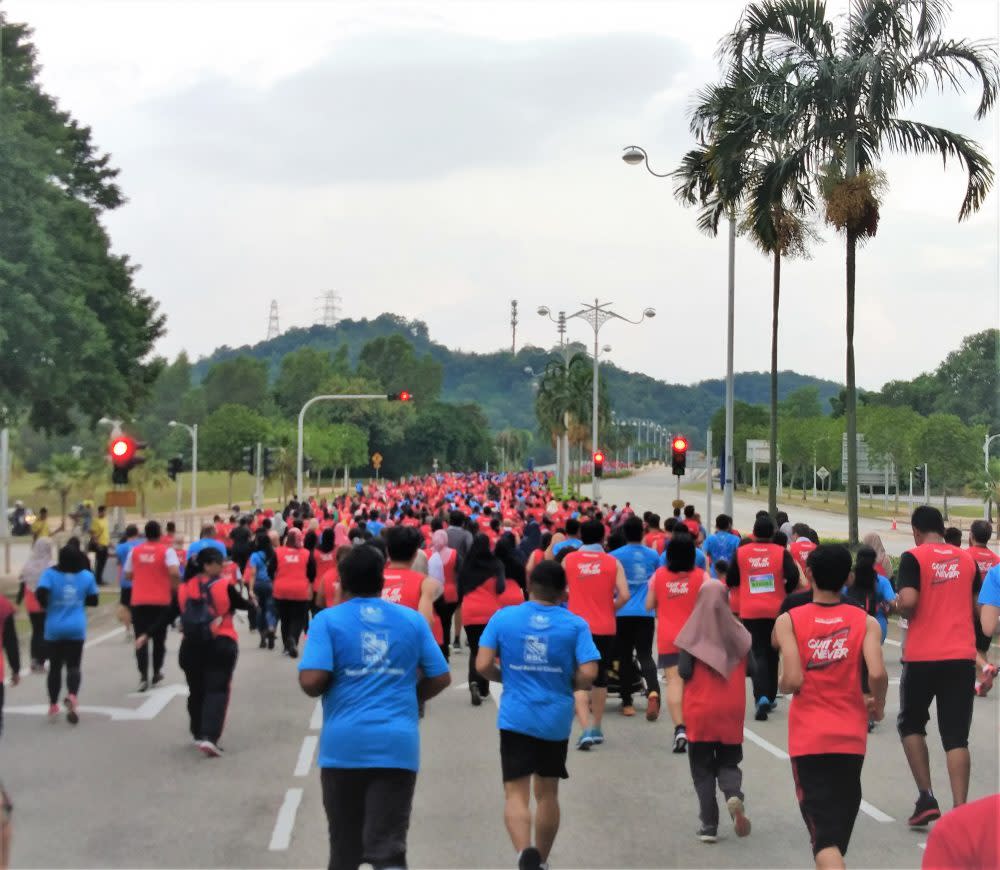Rethink pumping money into elite sports, focus on inspiring active lifestyle among Malaysians instead

By any standards I’m fat. I eat giant amounts of rice three times a day, like my drinks super sweet, and every week, I can be found dragging my feet through the pasar malam with a big brown bag of deep-fried chicken skins, sweeping the stalls for more food and grub.
On top of all that, I sleep late, have a habit of indulging in midnight snacks, and find myself in a constant battle to start running again, which I’m currently losing.
To maintain those delightful habits, I constantly consume sports (content) – hoping that the more I consume, the greater the drive for me to lift myself off the couch, boosting productivity, and cutting my obesity.
That’s what we were told. Sport is often expressed as the best anti-crime policy, the best public health policy, and the best way to bring people together. This is probably the key ‘disguise’ used by the Malaysian government to justify millions of ringgit in taxpayers’ money spent to host a major sporting event, to take part in a major sporting event abroad, to fund the development and growth of elite athletes, and to acquire broadcasting rights for sports events.
Despite all that spending, public health continues to be in the gutters. For the past decade, Malaysia has been constantly ranked as the most obese country in Southeast Asia.
According to the latest data from the World Obesity Atlas 2023, Malaysia is set to experience a “very high” annual upward trend, and by 2035, a staggering 41 per cent of Malaysian adults will be checked as obese or overweight.
I have watched with fascination the many half-baked attempts by the government to increase the number of people embracing an active lifestyle. I remember when almost all the conversations were simply about “national sports programmes” or “winning our very first Olympic gold”, and almost none about inspiring an active lifestyle or encouraging greater public participation in sports.
But the most compelling thing, however, is seeing how communities collectively reacted towards that emptiness – taking charge, organising and financing their grassroots programmes.
I am not entirely sure when it exactly happened, but the void paved the way for the creation of sports-related social movements like Padang Bola Sepak (PBS) and Brand New Wave Running Club (BNWRC), which promotes public participation and celebrates diversity and inclusivity through the careful design of their many programmes.
PBS, founded a decade ago, was recently recognised for its dedication and relentless hard work among urban communities, and is now delightfully in collaboration with Think City, a major community-focused urban regeneration organisation, funded by Yayasan Hasanah, a foundation of Khazanah Nasional.
Now, it would only make good sense for the government to also recognise such devotion, mimic Khazanah Nasional, and reinforce these social movements by supporting and allocating a sizeable amount to their public initiatives.
The emptiness also made room for private sector investment, and a beginning to a whole new business segment. Enterprises were quick to respond to the growing demands and started to either lease and upgrade abandoned public sports facilities, or finance the development of brand new ones.
Some may say that the mushrooming of private football fields is an obvious indicator of how our sporting industry is flourishing. But I don’t buy this. To me, it indicates the government’s constant failure to address an essential public need.
Earlier this month, certain media outlets went into a frenzy and published a 12-month report card of deliverables from the Youth and Sports Ministry. Supposedly, the ministry delivered 27 new initiatives. Someone bright must have thought that people’s endorsements of a public initiative are measured by the number of inputs it delivered. Whereas in fact, what most of us are concerned with are not inputs, but outputs – what did those investments achieve?
The views expressed here are the personal opinion of the writer and do not necessarily represent that of Twentytwo13.
The post Rethink pumping money into elite sports, focus on inspiring active lifestyle among Malaysians instead appeared first on Twentytwo13.


